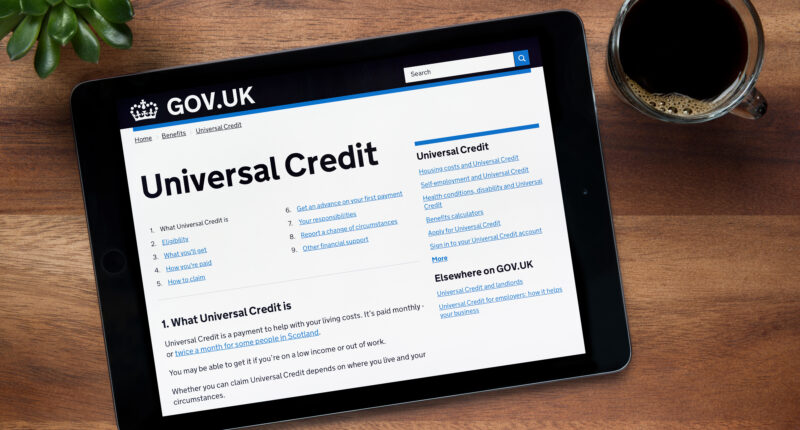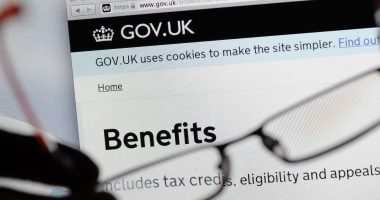THOUSANDS of people claiming Universal Credit could see a change to their payments this week.
It’s vital to take note of when you might get your payment so that you don’t fall short or overspend.
Bank holidays over Easter may mean that you might see cash hit your bank account before your usual payment date.
This means that many receiving Universal Credit and other benefits will receive their payment on a different day than usual.
The Government has confirmed that benefit payments due to land in accounts on Friday, April 7 and Monday, April 9 will be made early.
So if your payment is due on any of the dates between April 7 and April 10, you should expect to be paid the Thursday before, on April 6.


This will be adjusted automatically, so there’s no need to do anything.
If your payment falls outside of these dates, you shouldn’t expect any changes at all.
This is because everybody’s usual payment date depends on when you first applied and when your application for benefits was approved – so there is no set day for everyone.
Usually, you receive your first payment seven days after the end of your initial assessment period.
Most read in Money
Benefits that could be affected by the Easter holiday include:
- Attendance allowance
- Carer’s allowance
- Child benefit
- Disability living allowance
- Employment and support allowance
- Income support
- Jobseeker’s allowance
- Pension credit
- Personal independence payment
- State Pension
- Universal Credit
- Tax credits (such as working tax credit)
If you don’t receive your benefit payment one working day before the bank holiday, you should contact DWP directly.
You can also submit a complaint to them to get a problem sorted if your payment is wrong.
Will my payment amount change?
The only thing that changes is when you get paid.
Of course, the amount you get depends on which benefits you’re currently claiming.
If you think you’re eligible for benefits and missing out, then we’ve explained how to check which benefits you could claim.
How will it affect me?
Getting paid early will mean you need to plan out your month to make sure you don’t overspend.
Make sure to factor this into your budget for April.
We’ve some top tips to make sure you save money throughout the month including meal prepping and finding hidden food discounts – you can read more about those in our guides.
What are the payment dates for other bank holidays?
It’s best to make sure your benefit payments won’t be affected by any other bank holidays this year.
Or if they are, make sure you know when payments will land so you can best prepare.
Here’s when the DWP will make your payments around other public holidays.
- Early May bank holiday – payments will be made on May 1, instead money will arrive on April 28
- King Charles III’s coronation bank holiday – Payments will be made on May 5, not May 8
- Spring bank holiday – May 26, not May 29
- Summer bank holiday – payments will be made on August 25, not August 28
- Festive period – payments due on December 25, 26 and 27 this year, will instead be paid on December 22
The update comes after millions on benefits are set to be worse off for years despite being in line for a 10.1% payment boost in April.
Households will be worse off until 2025 as payments have failed to keep up with inflation, a think tank has said.
The annual uprating of benefits in April will “merely take them back to around the real level they were at a year earlier”, the Institute for Fiscal Studies (IFS) said.
But hundreds of thousands of people could be better off if they earned less due to the way the Government’s cost of living payments will work.


Real benefit rates were 7.6% lower in 2022 compared with their pre-pandemic levels in 2019, and will be 6.2% lower in 2023 and 2.0% lower in 2024, the IFS said.
This is equivalent to a £500 per year real terms pay cut for the average out-of-work claimant.










